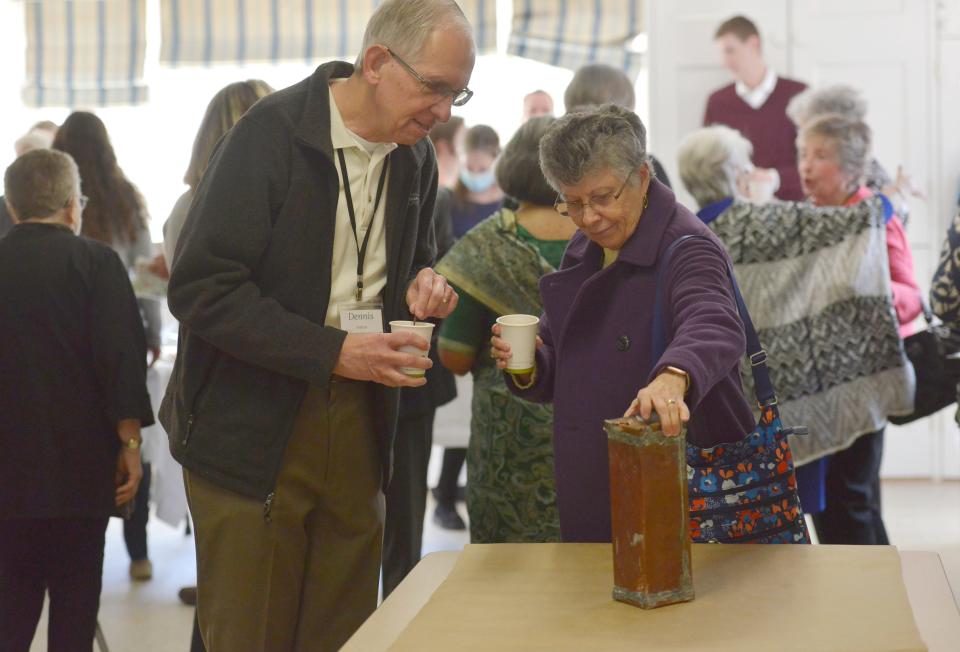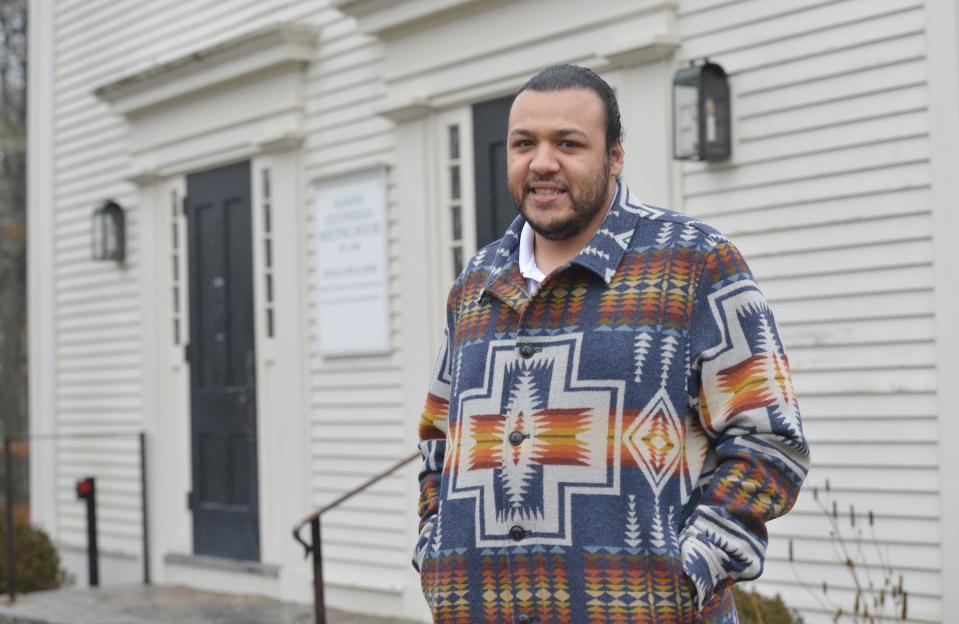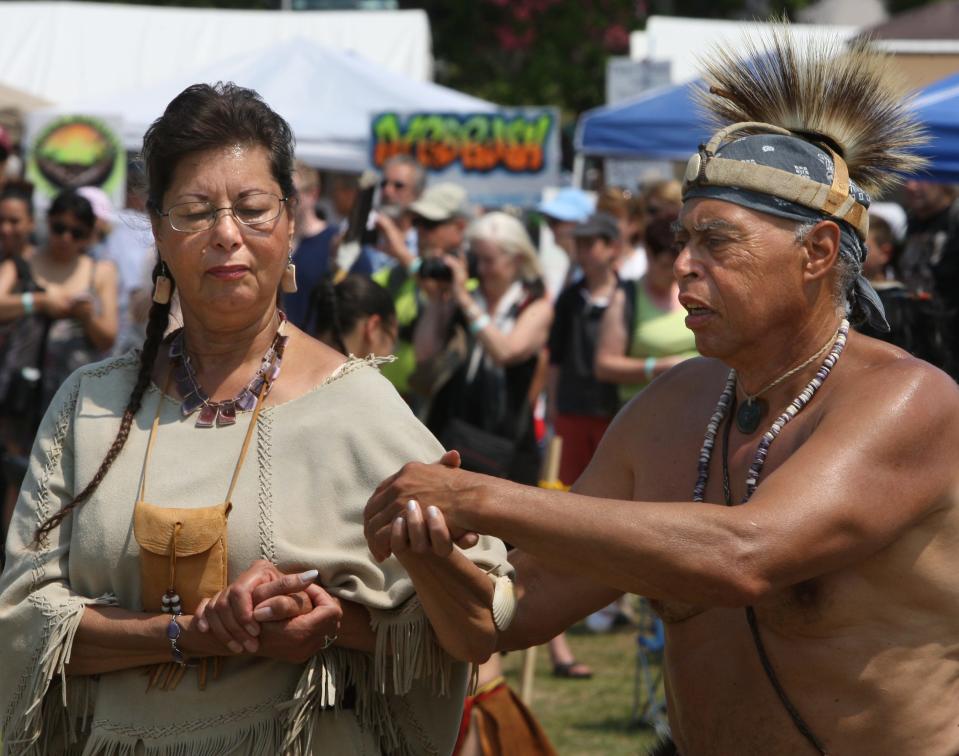'Race Amity Day' hopes to bring people together in Mashpee
MASHPEE — “Amity is not a common word these days,” said Richard Donovan. “But it simply means friendship.”
Donovon, a Mashpee resident, will speak at “Race Amity Day,” a Bahá’í faith-inspired event, which will be held from noon to 4 p.m., Sunday, June 12 at Mashpee Community Park.
Planned by the Mashpee Inclusion & Diversity Committee, “Race Amity Day" is a national celebration being held for the second time in Mashpee, said Donovan.
The event, which is sponsored by the Massachusetts Cultural Council, will feature Mashpee Wampanoag Tribal dancers and drummers. An opening prayer and land acknowledgement will be given by Brian Weeden, chairman of the Mashpee Wampanoag Tribe, and David Weeden, council member of the Mashpee Wampanoag Tribe and a member of the Mashpee Board of Selectman.

For Marie Stevenson, chairperson of the Mashpee Inclusion & Diversity Committee, the key to the event is to bring as many diverse groups as possible together.
"What was wonderful about the event last year, was watching so many people dance and sing together," she said. "It's a joyous event."
Public officials including state Rep. David T. Vieira, Republican 3rd Barnstable, and Sen. Julian Cyr, D-Truro, are scheduled to appear, as well as John Reed, president of the National Association for the Advancement of Colored People Cape Cod, and co-founder of the Zion Union Heritage Museum in Hyannis.
'This news is so welcome': Mashpee Wampanoag Tribe can retain reservation land
Performers also expected to attend the event include: spoken word poet Tamora Israel (who is also a reporter for the Provincetown Banner and Cape Cod Times); Grammy-award winning funk group The GroovaLottos; and Asa Peters, a member of the Mashpee Wampanoag Tribe, who will play the saxophone.
A Race Amity Proclamation, which Gov. Charlie Baker established within the Massachusetts Legislature in 2015, will be read during the event. The proclamation is an act designating the second Sunday in June, annually, as "Massachusetts Race Amity Day," and was also recently approved by the Mashpee Board of Selectmen.

Trish Keliinui, a member of the Mashpee Wampanoag Tribe and a town employee, wasn't familiar with the national "Race Amity Day" before attending last year's celebration. She hopes more towns on the Cape can formally recognize it.
"It's an opportunity to be able to just enjoy each other's cultures and identities and learn more about each other," she said.
Keliinui said the Mashpee Inclusion & Diversity Committee showed an extra effort to include tribal elements into the event. It's an indication, she said, that non-Native citizens are proud to share the Mashpee community with the Mashpee Wampanoag Tribe.
'Hard to ignore': Poets, musicians return to spotlight George Floyd murder, racial justice
"Any chance we get to be able to share and learn about various cultures, backgrounds and ethnicities — everyone is better for it," she said. "Especially with where we are in the world, you can't get enough of celebrating the diversity of a small town and a small community."
Dan Kupferman, a member of the Mashpee Inclusion & Diversity Committee, agreed with Keliinui, and said organizers hope people can gather regardless of race, religion, ability or sex.
More: Black History Month events focused on health, wellness
"We want to raise the town's consciousness, to consider embracing people who might be different or not in the majority," he said. "We want people to be less afraid to open their minds and hearts — especially with what's been going on in this country regarding social justice issues."
The history of Race Amity Day
The concept of the event, Kupferman said, came from Mashpee community members who practiced the Bahá’í faith and introduced the Mashpee Inclusion & Diversity Committee to "Race Amity Day." The Bahá’í faith, according to the Bahá’í community faith website, was established in 1844 by Bahá’u’lláh, and is practiced in about 100,000 locations globally.
"We immediately thought it was a great concept and idea," Kupferman said. "It's such a simple concept of everyone getting along with everyone. And talking about what that means."

Although the Bahá’í faith was created in the 1800s, "Race Amity Day," wasn't developed until 1921 in Washington, D.C., said Donovan, as a response to unsettled race relations throughout the United Sates. It was 'Abdu'l-Bahá, son of Bahá’u’lláh, who founded the event, said Donovon, in an attempt to move people closer to a sense of unity.
"Back 100 years ago, horrible things were happening and for 'Abdu'l-Bahá's entire life he promoted this concept of oneness, of mankind," Donovan said.
Through a collaboration between Abdu'l-Bahá; Agnes Parsons, a white Washington socialite; and Coralee Cooke, an African-American Howard University professor, the first "Race Amity Day" was celebrated as a three-day conference in Washington, D.C., on May 21, 1921, according to the National Center for Race Amity.
More: Stephen Boyd retires as longest serving Black aviator in Massachusetts Army National Guard
The conference featured Sen. Moses Clapp and "father" of the Harlem Renaissance, Alain Locke. Thousands of people attended the conference, said Donovan, and follow-up events were held across the nation in cities and smaller communities.
"It was an event that wanted to move from recognition, tolerance and acceptance towards friendship and towards love," he said.
Donovan, who was a media analyst for most of his career, isn't sure that Mashpee's "Race Amity Day" can solve race relations on Cape. But it has the capacity to face "America's most challenging issues."
"Race relations have proven to be an intractable problem that continues into the present day," he said. "But the town as a whole — including the Tribe — has provided exceptional support for the issue."
This article originally appeared on Cape Cod Times: Cape Cod: Race Amity Day will bring race-focused unity to Mashpee

